12 Oct – 30 Nov 2020
Ainu Hunter, Mon-chan seeks to explore an idea of ecology of empathy between human and non-human worlds. Eiko Soga presents an ethnographic video essay which includes an oral history from a member of the Ainu community, Mon-chan (Atsushi). Using visual and audio recordings that the artist collected throughout 2019 – Soga explores the question: How we can imagine a future that is more ecological and inclusive, with a sense of reciprocity, in the post-COVID19 era?
The protagonist Mon-chan, maintains positivity, honesty and a sense of resistance to the changing nature of Japan and its impact on his way of life. As fires and deforestation continue across the world, and sustainable food resources become scarce, he raises the fact that environmental issues are only discussed through the lens of city centric views, disregarding the generations of experience of indigenous cultures. The artist captures the impact that his words had on her as she made her way back to everyday life in the city. With the wisdom of Ainu elders, and other indigenous voices being shared, Soga proposes the idea that the next generation can think about the world in a more holistic and empathetic way.
She says: ‘‘I have been witnessing how the Ainu communities support systems, knowledge and skills have been at risk of loss. During the lockdown in England, I have been revisiting audio recordings of interviews that I conducted in order to engage with the Ainu culture and socio-political landscape in Hokkaido, Japan. I hope, that with the support of the Foundation’s mutual aim to share knowledge and expertise, my work will participate in a conversation to protect the Ainu elders lived wisdom, which is of value to the whole of humanity.’
To know more read our interview with Eiko Soga here.
Ainu Hunter, Mon-chan was commissioned as part of At Home in the World presented by the Bagri Foundation.
Biography
Eiko Soga is a Japanese artist-researcher currently reading for her DPhil at The Ruskin School of Art, University of Oxford. Her doctoral project combines video, poetry and ethnography, based on an engagement with the Ainu culture. Since 2015, she has been learning about the social environment and cultural history through making videos and writing poetry based on her experiences in Hokkaido, Japan. Her research has had a focus on women, affective gestures, questioning how new artworks might engage with a sense of value that generates ecological and empathetic knowledge.
In March 2020, she had a plan to start fieldwork in the town of Samani with an Ainu woman called Ms Kane Kumagai who is known to be one of the last people to hold knowledge of the Ainu and is a leader of the Ainu cultural preservation team in Samani. She had a plan to document the process of learning and embodying Ainu knowledge through learning how to work in nature and cook throughout different seasons in the Ainu way that is considered to be ecological and community oriented. Learning Ainu cookery was going to allow her to develop a holistic view of how they engage with nature and people to establish their world view. However, due to the unexpected situation caused by the COVID19, her fieldwork had to be cancelled. She is now exploring a different way of communication with Ms Kumagai through the exchange of phone calls, letters, and photographs based in Oxford.

